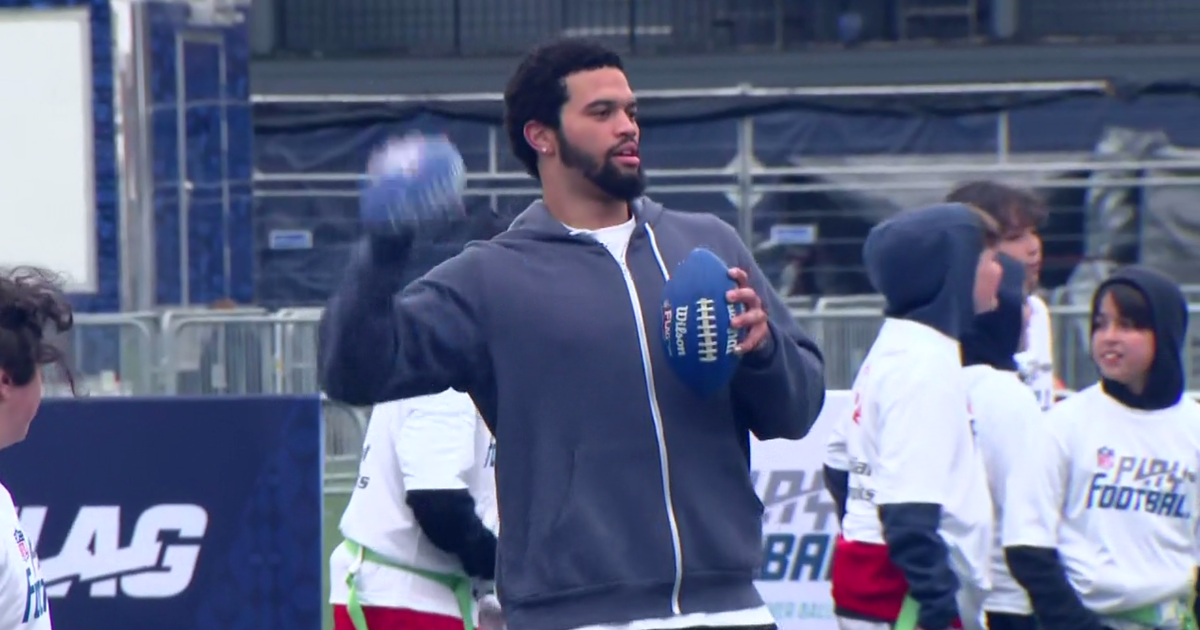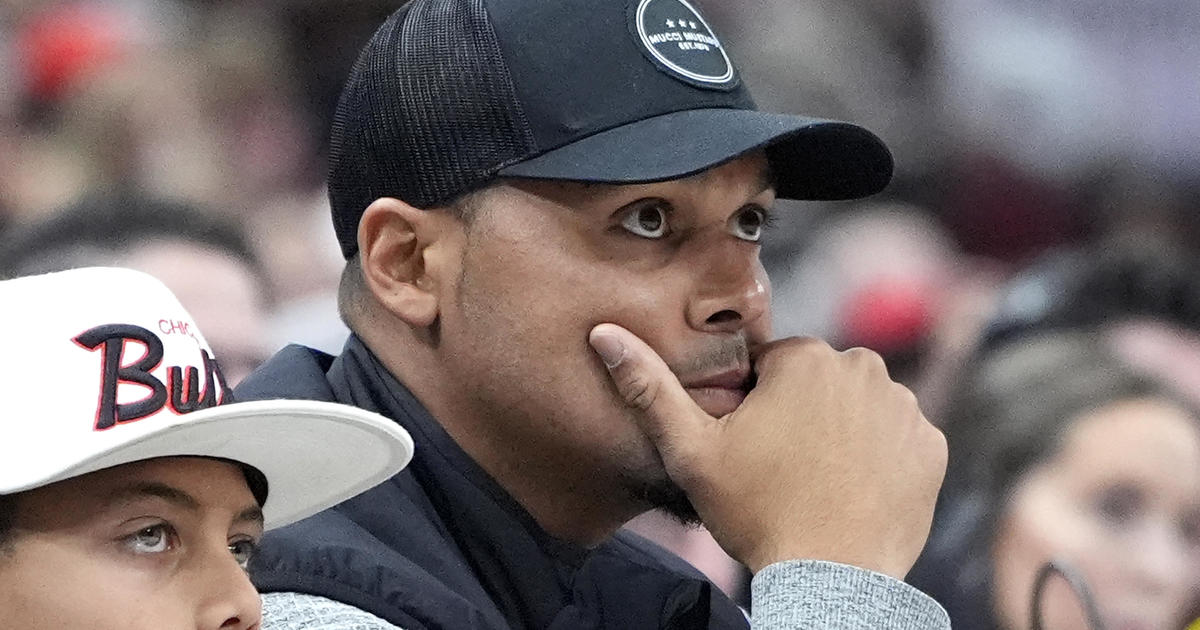Durkin: Tempo Is The Key For Trestman
By Dan Durkin-
(CBS) The 445 points scored by the 2013 Chicago Bears is the second-highest total in franchise history. Just think what they can do with 100 more chances.
After orchestrating a dramatic turnaround in his first year on the job, head coach Marc Trestman is looking for more. In addition to self-scouting, the Bears took a look at what was going on around the league, and one statistic caught Trestman's eye: total plays from scrimmage.
"There were teams that were ahead of us offensively that ran over 100 more plays than we did — two or three teams that did," Trestman said last week. "If we can add 100 plays to what we already did, that would be a great starting point."
That works out to roughly a 10 percent increase in volume of plays and potential production for the Bears' potent attack. Chicago averaged 63.3 offensive snaps last year, which was 22nd in the league, per team rankings.com. Denver led the NFL with 72.1 snaps per game.
The Bears ran some no-huddle last year, but in year one of installing any scheme, the terminology, concepts and protection schemes are all brand new.
"We had some of that (no-huddle) last year," Trestman said. "Last year, we were in the early stages of our offense and we just found we were better out of the huddle and working from that format."
With all 11 starters returning on offense, Trestman's second season can focus less on terminology and more on expanding base concepts and adding new wrinkles.
Throughout camp, the Bears have practiced at a fast pace. In pace rabbit-style, Trestman can frequently be seen sprinting alongside his players during play shouting instructions and encouragement along the way.
They've also piped in music and crowd noise during practices. All of these tactics are designed to create uncomfortable, game-like conditions and make players adjust. It's loud on the road, so practicing in a similar environment forces the team to work on their communication (silent counts and hand signals) and sharpens their focus.
Football is a game of anaerobic bursts that requires maximum effort for short periods of time on a repeated basis. Practicing at a frenetic speed challenges players' conditioning levels, which is often taken for granted. Considering all the moving parts, any physical or mental lapses -- even the most minor -- can lead to negative plays.
In his own unique way, Trestman demands efficiency and proper execution of assignments. He's an even-keeled coach, but nothing sets him off more than pre-snap penalties.
"You just cost your team five yards," Trestman exclaimed after a false start during a practice last weekend. "Get back to the huddle!"
It was a firm-yet-informative way to get his point across.
Challenging players to perform in stressful situations and coordinating the offense to react more and think less on each play can allow the Bears to reap the numerous benefits to running even more up-tempo drives.
In a no-huddle, up-tempo drive, an offense can keep its five most-skilled playmakers on the field. For Chicago, this group projects to be Matt Forte, Brandon Marshall, Alshon Jeffery, Marquess Wilson and Martellus Bennett. Collectively, that is one of the league's most physically imposing groups of eligible receivers, so it only makes sense to maximize their opportunities to make plays. Each player is capable of beating his opponent, so who will defenses attempt to take away?
When running at a quicker tempo, an offense gets a defense to declare and align in its coverage earlier. It's then up to the quarterback to read the location and depth of the safeties to determine which coverage they are in and make the appropriate checks.
Defenses are also unable to substitute during an up-tempo drive. Keeping the same personnel on the field play after play leads to lapses in technique and alignment and may take away a defense's overall aggressiveness
Given that the best view of the field is up above from the coaches' box, if a team doesn't have a linebacker that can get them lined up properly, an offense can essentially -- at least temporarily -- take the defensive coordinator out of the game.
By maintaining continuity with their offensive personnel and coaching staff, the Bears kept their strength a strength. Upgrading the talent level and coaching on defense should lead to more stops and better field position, which means more opportunities on offense.
Throughout his career, Trestman's seen a lot of success in his second year on the job. In Oakland in 2002, he helped lead the Raiders to an AFC Championship. In Montreal in 2009, he led the Alouettes to a Grey Cup Championship.
What's in store for Chicago in 2014?
Follow Dan on Twitter: @djdurkin



